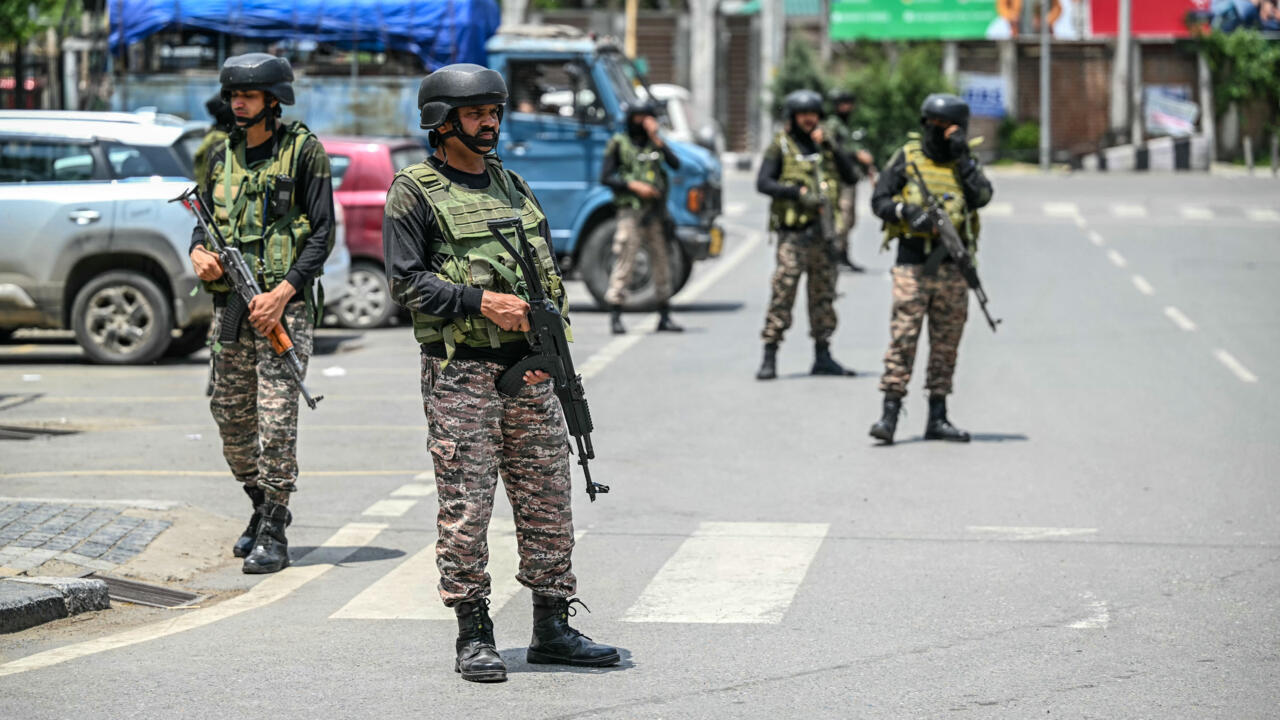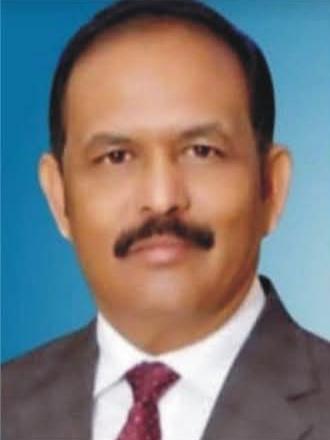The recent conviction of three prominent Kashmiri women leaders—Asiya Andrabi, Fahmeeda Sofi, and Nahida Nasreen—by a National Investig
Christians and Internecine Warfare. By James R. Reese, KGCTJ

I have been following the debates on the Church of Pakistan with much interest. Last April I traveled to Pakistan to make a personal assessment of the Christian community’s situation there, and also to work for the release of Christian religi
In light of the difficulties that Christians face in Pakistan, you would think that the churches there would be united in their efforts to protect the Christian community and to spread the Gospel. However, by the volume of email I receive on the churches in Pakistan, such is not the case. Instead, I have seen what I refer to as “internecine warfare” among Pakistani Christians, meaning that there are disagreements and schisms that are threatening to tear apart the Pakistani Christian community.
Two things must happen to stop this destructive warfare. First, Pakistan’s Christians must cease the name calling, making accusations, and using innuendo to discredit their opponents. And, secondly, those who hold positions of power in the Pakistani Christian community must be willing to come down from their “ivory towers” and talk to Christians of their own church and other churches as well. If these two things do not happen, the only winners will be the Islamic extremists who want to see the Christian community in Pakistan destroyed. Words have the ability to destroy what all the bombs and bullets of the terrorists cannot.
One might ask what this American Christian, this Scottish Knight Templar, might know about such things. I know that name-calling is a sin, for our Lord speaks of this in Matthew 5:21-22. Jesus said, “Ye have heard that it was said by them of old time, ‘Thou shalt not kill, and whosoever shall kill shall be in danger of the judgement; but I say unto you, That whosoever is angry with his brother without a cause shall be in danger of the judgement; and whosoever shall say to his brother, ‘Raca,’ shall be in danger of the council, but whosoever shall say ‘Thou fool,’ shall be in danger of hell fire.”
I know about this sin, for I have been guilty of it more times than I would like to remember.
In examining this verse, we should remember that “raca” is an Aramaic word which today would translate as “idiot” or “stupid ignoramus.” The Greek word, “moros,” which was translated as “thou fool” in the King James Version, is an attack upon a person’s moral character, depicting him or her as being morally bankrupt. The term “hellfire” comes from “Gehenna,” a Greek word formed from two Hebrew words, Ge and Hinnom, meaning “The Valley of Hinnom.” The first insult could put a 1st century Jew in danger of the “Council of Three” in the local synagogue, but the second insult puts anyone using it in danger not only of the Sanhedrin, but also of having one’s remains being placed in the Valley of Hinnom—a metaphor for being denied a proper burial, which was considered a terrible disgrace in Israel.
It is clear that our Lord does not appreciate our vilifying others with whom we disagree. Would any of us wish our Lord to return while we were in the midst of launching a verbal attack on another person?
Name calling does not solve problems, and it does not edify the name caller in the least. It can, however, place obstacles in the way of reconciliation and resolution of the problem at hand. Also, the name caller tends to lose credibility, particularly if he or she wants to retain the moral “high ground.”
I have absolutely no doubt that the disaffected Pakistani Christians who are applying epithets to their opponents believe that they and others have been wronged. However, these epithets have not brought any solutions. Nor has the silence of those to whom they were directed.
What is needed is meaningful dialogue. When people do not talk to each other, it is easy to imagine the worst of each other. Problems do not get solved when people do not talk, but they can grow bigger when nurtured by silence or are ignored by those with the power to change things.
Here is what I propose: First, let us cease the name calling and reconcile ourselves over past name calling. When we go forward with any grievance, let it be with a clear conscience and no self-imposed obstacles to reconciliation.
I will go first. About two years ago, a private email found its way to the Web. In this private email, I referred to the leader of another Templar group in the USA as a “notorious Freemason.” To Vince Zubras, Jr., who was the subject of these remarks, I ask that he accept my apologies, which are hereby extended. He and I may not hold the same opinions, and we may have some fundamental disagreements, but we are both Christians and our Lord does not approve of our efforts to deprecate a fellow Christian. Vince, I’m sorry, and I pray that you will forgive me. We are both Episcopalians, and we cannot go to the altar rail and receive the Eucharist in good conscience if we are unrepentant about wrongs we have committed against others.
It’s really just that simple. None of us stand so high and mighty before God that we do not have to ask His forgiveness for our sins.
We should remember, also, that Christianity is about the unlimited outpouring of love, the love which flows from the Cross itself. Ours is not a religion about hate and generational grudges. If we wish to embrace the love that our Lord has given to us, we must also embrace our fellow human being. You cannot love God and hate His children. If we hate Muslims, or Hindus, Buddhists, atheists—or our fellow Christians—we do not have the Holy Spirit within us.
Just as aggrieved Christians must stop their name-calling, the leaders of the Christian churches of Pakistan must not stand behind privilege or power, or claim to be too busy to meet with them. The leaders of the Christian churches in Pakistan and elsewhere have a moral duty and obligation to listen to the members of theirs and other churches. The Apostles of the New Testament were always accessible, which is not something that can be said about many modern church leaders. If one would be a leader in the church, he must be willing to serve. If a church leader feels that he is too important or does not have the time to talk to someone with a problem, real or imagined, then that church leader is in the wrong “business.”
There are many church leaders today who feel that they do not have to respond to individual Christians, or even large groups of Christians. I will not call such leaders names, but I will try to engage them in meaningful dialogue. If they do not want to listen to me, the next step is to bypass them and go straight to the members of their church. Not even the most authoritative leader of the most authoritative church is immune to an outraged congregation!
Therefore, let all who love our Lord cease any and all name calling, and let us use love as our guide to the identification and resolution of problems. We must cease attacks upon others, and forgive attacks upon ourselves. When we ask our Lord for forgiveness, let us not fail to forgive those who have “trespassed against us.”
And what of the hurtful words we may suffer while trying to do our Lord’s work? I saw the following message posted at the entrance to a church recently: “When others speak ill of you, live so that they will not be believed.”
The greatest threat to the Pakistan Christian community is not terrorist bombs or bullets, for our Lord promised us that not even the “gates of hell” would prevail against His church. No, the greatest threat to the Pakistani churches—and churches everywhere—is internal strife. External forces cannot prevail against us, but we can do their work for them through our individual choices—through such choices as denouncing others or walking away in anger.
In summary, name calling should never be an option for the Christian, and church leaders should always be willing to talk with concerned Christians. Problems will not be identified or resolved through overheated rhetoric or stony silence. Meaningful dialogue does not have to be completely devoid of emotion, but it should not be characterized by hurtful name calling or accusations.
I pray that the Church of Pakistan will solve its internal problems, for the individual Christians I have met in Pakistan were an inspiration to me. I pray that the church in Pakistan will never be like the Church in Ephesus which is mentioned in Revelation 2:4-5: “Yet I hold this against you: You have forsaken your first love. Remember the height from which you have fallen! Repent and do the things you did at first. If you do not repent, I will come to you and remove your lampstand from its place.”
Never have I seen such love as I have among the Christians of Pakistan. I pray that you will use this very same love to solve all the disagreements within and between the churches in Pakistan!
James R. Reese, KGCTJ
Grand Prior of the United States
Priory of the Holy Angels
Scottish Knights Templar
You May Also Like
Open Doors, an international organization that provides protection to vulnerable Christians around the world, released a World Watch List in 2025,
Accepting the Lord Jesus Christ and following His commandments is a difficult and arduous path. Every step of the way is fraught with suffering, pe

On demand of our readers, I have decided to release E-Book version of "Trial of Pakistani Christian Nation" on website of PCP which can also be viewed on website of Pakistan Christian Congress www.pakistanchristiancongress.org . You can read chapter wise by clicking tab on left handside of PDF format of E-Book.








